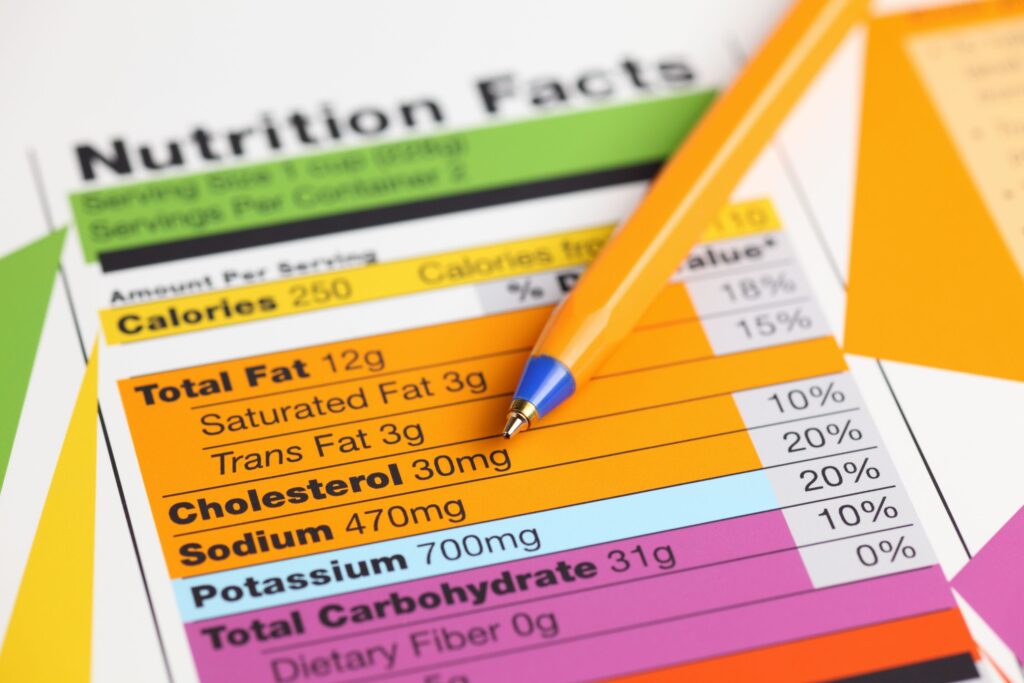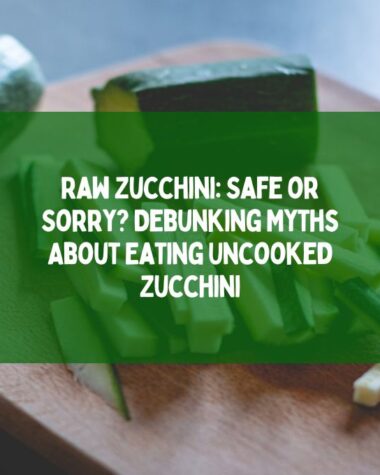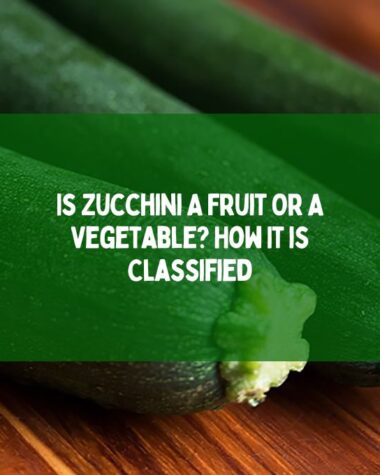In recent years, the term “superfood” has gained significant popularity in health and nutrition discussions. Superfoods are believed to have exceptional nutrient profiles and potential health benefits.
One vegetable that often sparks curiosity in this context is zucchini.
Is zucchini a superfood?
In this article, we will delve into the nutritional composition of zucchini, explore its potential health benefits, and separate fact from fiction.
Is Zucchini a Superfood?
Now, the question remains: Is zucchini a superfood? While zucchini does possess several impressive health benefits, it may not fit the exact definition of a superfood. The term “superfood” is not scientifically defined and lacks a specific criterion for inclusion.

However, zucchini undoubtedly offers a range of nutrients and health advantages that make it a valuable addition to a balanced diet.
Related Reading:
- Is Zucchini A Fruit Or A Vegetable? How It is Classified
- What is the Difference Between Zucchini and Courgette?
- Can We Grow Zucchini And Eggplant Together?
- How To Pollinate Zucchini Plants?
Nutritional Composition of Zucchini

Zucchini is often praised for its low-calorie content, making it a popular choice for those aiming to maintain a healthy weight. However, its nutritional value extends far beyond its caloric content. Here is a breakdown of the key nutrients found in zucchini:
- Vitamins and Minerals: Zucchini is a rich source of vitamins, including vitamin C, vitamin A, and folate. It also provides essential minerals such as potassium, manganese, and magnesium, which play vital roles in maintaining overall health.
- Fiber: Zucchini is packed with dietary fiber, which is crucial for a healthy digestive system. Fiber aids in regulating bowel movements, preventing constipation, and promoting a feeling of fullness, which can be beneficial for weight management.
- Antioxidants: Zucchini contains various antioxidants, including carotenoids like lutein and zeaxanthin. These compounds have been linked to eye health and may help protect against age-related macular degeneration and cataracts.
- Water Content: Zucchini has a high water content, contributing to hydration and aiding in maintaining optimal bodily functions.
Related Reading:
- Understanding Deformed Carrots And How To Fix Them
- Why Eggplant Is King of Vegetables: Unveiling the Majesty of Aubergine
- How to Remove Tomato Stains: Easy Solutions for Stubborn Stains
- Why Can’t We Eat Cucumber at Night?
- A Complete Guide On Grow Pumpkin Indoors
Health Benefits of Zucchini
Let’s explore the potential health benefits associated with consuming zucchini:
- Weight Management: Due to its low calorie and high fiber content, zucchini can help with weight management. It provides bulk without adding excessive calories, promoting satiety and reducing the likelihood of overeating.
- Heart Health: The potassium content in zucchini is beneficial for heart health. Potassium helps regulate blood pressure and supports proper heart function.
- Digestive Health: The fiber in zucchini aids in maintaining a healthy digestive system by promoting regular bowel movements and preventing constipation.
- Eye Health: The carotenoids present in zucchini, such as lutein and zeaxanthin, contribute to eye health and may help protect against certain eye conditions.
- Hydration: Zucchini’s high water content contributes to overall hydration, which is essential for various bodily functions.
- Antioxidant Protection: Zucchini’s antioxidants help fight against oxidative stress, which is associated with various chronic diseases.




